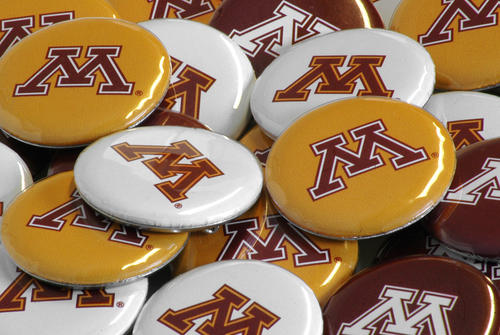
Systemwide, more first-year students have confirmed their intent to attend the University of Minnesota this fall compared to the same time one year ago, one of several updates received by the University’s Board of Regents this week.
The Board’s Mission Fulfillment Committee discussed systemwide enrollment with members of the University’s System Enrollment Council through a variety of lenses. Regents examined systemwide and campus-specific data for the upcoming fall semester, while also reviewing historic context, looking closely at trends and indications of future enrollment opportunities and challenges, and diving deeper into the details of systemwide efforts to enhance collaboration in admissions, marketing and financial aid.
As fall enrollment numbers come into sharper focus, early indicators such as confirmations from graduating high school seniors have been positive at the system level and for several individual campuses. Overall, systemwide confirmations for students coming directly from high school have jumped roughly 12 percent since this time last year and are up about seven percent over the University’s five-year average. At the campus level, Duluth and Morris have both seen notable increases, while the Twin Cities’ total is an all-time high. Though encouraging, presenters emphasized that these numbers will continue to evolve, as will numbers related to transfer and non-traditional students.
Enhancements and investment in undergraduate financial aid was noted as critical to recruiting and enrolling top-tier students. Examples include:
- The University’s new “Promise Plus” Free Tuition program, which provides free tuition to any student with an annual family income below $50,000;
- The Bentson Foundation’s scholarship match program, which has already raised more than $6.1 million to directly support Pell-eligible, low-income students, and;
- Systemwide scholarship efforts aimed at retention, an initiative the University piloted last fall that produced strong student retention results from Fall 2020 to Spring 2021.
Regents also considered some of the demographic trends that may challenge enrollment efforts in the future. Among these are the anticipated decline in the number of Minnesota high school graduates, beginning in approximately six years and continuing in the years after, along with projections that most regions of the United States will experience a decline in high school graduates over the coming decade, including the Midwest’s projected five percent decline. Presenters reinforced that these data should inform campus enrollment strategies and drive data-informed decision-making.
A natural extension of the Board’s June 2017 adoption of the University of Minnesota Systemwide Strategic Framework, the System Enrollment Council brings together leadership from all five University campuses to identify and review systemwide and campus-specific enrollment, admissions and recruitment data for strategic enrollment planning. Through monthly meetings and regular communications among system directors, campuses have begun conducting joint recruitment throughout the state, observed an increase in students sharing their applications across the system and realized efficiencies through shared information, data sets and technology.
New Board leadership elected
At its annual meeting Friday morning, the Board elected its Chair, Vice Chair, Secretary and Treasurer. Regent Ken Powell was elected the Board’s Chair, with Regent Steve Sviggum elected to serve as Vice Chair. The Board selected Brian Steeves and Myron Frans to continue in their roles as secretary and treasurer, respectively. These officers will serve two-year terms, from July 2021 through June 2023.
The Board also:
- Reviewed President Joan Gabel’s recommended fiscal year 2022 operating budget and hosted a public forum to take comments on the recommended budget. Final action is scheduled for June 29. Until that time, the Board invites public comment via its online form. All written comments will become part of the public record.
- Recognized outgoing leaders, including Morris Chancellor Michelle Behr and chairs of several University governance groups.
- Approved amendments to Board policies, including Student Education Records and Targeted Business, Urban Community Economic Development, and Small Business Programs.
- Approved Gabel’s recommended fiscal year 2022 capital improvement budget, reviewed by the Board in May.
- Approved the sale of the Murphy Warehouse property at 701 24th Ave SE in Minneapolis.
- Received the annual report of the Faculty Consultative Committee (FCC), which was presented by outgoing FCC Chair Phil Buhlmann.
- Discussed strategic planning with Duluth campus leaders, the third in a four-part series of campus-level strategic planning conversations.
The Board of Regents is scheduled to meet next on June 29, 2021. Visit regents.umn.edu for more information.
- Categories:
- Campus Affairs





